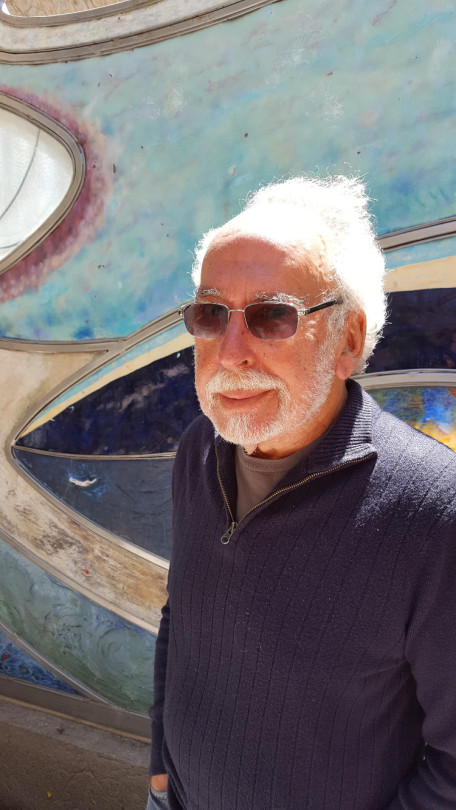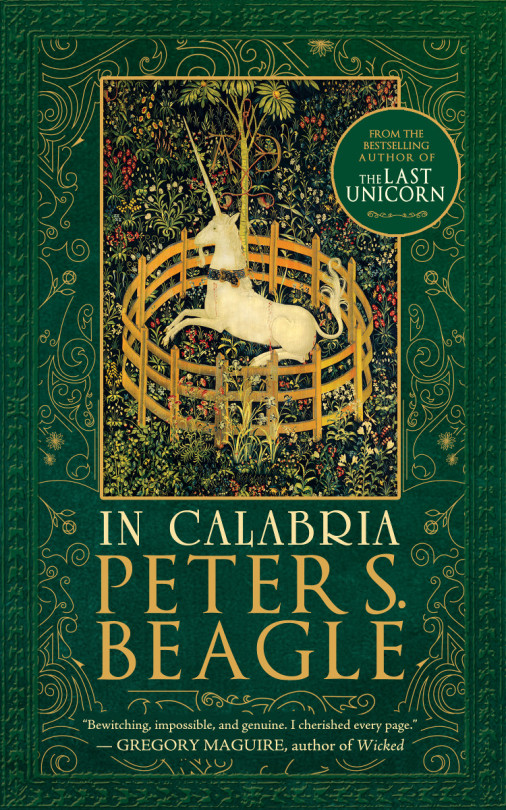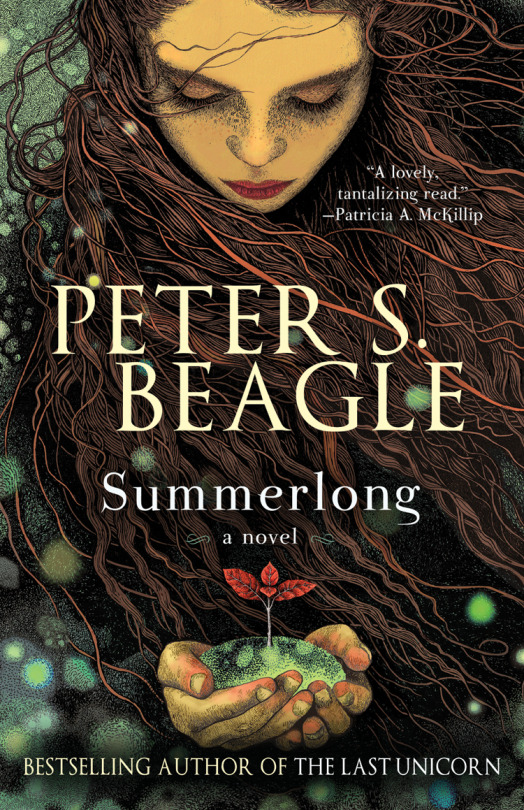Peter S. Beagle’s beautifully simplistic IN CALABRIA fascinates
A trio of reviews for Peter S. Beagle’s recommended IN CALABRIA.

Photo: Rina Weisman
For FOREWORD REVIEWS, Claire Rudy Foster enjoys the book.
Fans of THE LAST UNICORN will recognize Peter S. Beagle’s signature style immediately in his new novel, IN CALABRIA. Touching gently on themes of faith, mythology, and poetry, IN CALABRIA is a modern fairy tale that shows what happens when true magic meets modern technology.
<snip>
Although Beagle’s characteristically dry humor brings a few chuckles, In Calabria leans more towards magical realism than high fantasy. Some passages evoke prose poetry, with paragraph-long, labyrinthine sentences. The action is slow, with plenty of exposition and backstory between scenes. This builds anticipation, though the suspense can be killing, too. What will happen when the secret of the unicorn makes it to the paparazzi’s ears? Is the world still welcoming to magical creatures? Beagle returns to familiar, welcome territory and invites readers to get lost for a while.

THE SPECULATIVE HERALD praises the fantasy.

IN CALABRIA is my second book by the author Peter S Beagle, my first being SUMMERLONG. This book has a different feel in that it’s got an earthy realism to it that was unexpected, especially when picking up a book that is clearly going to feature a unicorn. It’s quite beautifully written and the fantasy elements are very ‘quiet’ almost like an aside.
<snip>
Would I recommend IN CALABRIA? Yes. This is a short story, it’s beautifully written and Beagle’s prose easily conjures up the region. The harsh lifestyle and the beauty offset by the rugged. If you’re expecting an all out fantasy in which the main protagonist befriends the unicorn then you’re not going to find it here. Be in no doubt that this unicorn is not just a mythical creature but is also a wild animal – she’s not about to start talking to Claudio or inviting him to ride around on her back while she traverses rainbows in the sky. Not that sort of novel. This unicorn is really, put simply, a creature that provokes change. Her appearance changes Claudio irretrievably and brings something different out in him, something that makes him appear different to others and gives him a shot at shaking his life out of the stupor into which it’s fallen.
Beautifully simplistic, wonderful prose, subdued fantasy, a hint of romance tempered with an underlying streak of potential violence.
I enjoyed this in fact I was fascinated by it enough to read it in one sitting. It was very unusual and quite different than I expected.

Steve Case at BLACK GATE reviews the work.
Peter S. Beagle has, by dint of his enduring classic THE LAST UNICORN, become the patron saint of these creatures among fantasy authors. But more than this, Beagle has become to fantasy writing a sort of patron saint of the longing that unicorns (when exhumed from the candied, polychromatic encrustations of the popular imagination) have come to embody. Beagle has resurrected the unicorn as a symbol to be reverenced, whether in his early novel or, as I have argued recently in another review, in the person of Lioness in his recent SUMMERLONG. Unicorns represent the quiet desperation for a touch of otherworldliness, of the desire for something beyond or above or even just beside to press up against our daily lives. It is this longing for visitation that runs through his latest work, the short book IN CALABRIA, and plays out on the confines of a rustic farm and in the life of a single isolated farmer.
<snip>
It is not, however, this isolation and timelessness alone that draws a unicorn to Bianchi’s farm to give birth. Rather, Beagle leads the reader to understand it is Bianchi’s crusty humility and his compassion for and amiable companionship with the animals that share his land. It may also be because Bianchi is a poet. His reputation as such among his neighbors is something of a puzzle, as he never shares his poems or publishes them. He simply takes pleasure in fitting words together, in working them the way he works the soil, and leaves them hidden in the drawers of his desk. For perhaps all these reasons, a unicorn appears in Calabria and chooses a hollow in view of Bianchi’s back window to give birth to her young. “I am past visitations,” Bianchi asks the pregnant unicorn when it first arrives. “What do you want with me?”
In this first portion of the work Beagle’s pacing is measured and his language equal to the task of conveying what could easily be just a trite pastoral. We see the encounter through Bianchi’s weathered, disbelieving but ultimately resigned eyes. No one else sees the unicorns except for a brief glimpse by Romano Muscari, Bianchi’s mailman and one of his few friends. Muscari’s younger sister, Giovanna, however, becomes a companion in the secret, visiting Bianchi’s farm regularly to watch the unicorns with him.
<snip>
IN CALABRIA quickly becomes not so much about the unicorns as about Bianchi’s two additional encounters that follow from the unicorns’ visitation. The first of these is with Giovanna. Like the unicorns, the young Giovanna becomes a breaking in of something terrifying and wonderful upon Bianchi’s entrenched isolation. “Do you know,” Bianchi asks the unicorns at one point, though as the story progresses he may as well be speaking to Giovanna, “do you ever consider, how beautiful and impossible you have made my life? Do you care?” The unicorns chose Bianchi’s farm, but Giovanna does something that to the old, crotchety Bianchi appears even more remarkable: she chooses Bianchi himself. Their growing relationship, despite the twenty-three year gap in their ages (and despite or because it perhaps represents dreams of an old writer), is believable, expertly crafted, and gives rise — as is the case in so much of Beagle’s work — through their conversations and Bianchi’s musing on it to some of the most poignant scenes of the work. It is a mark of Beagle’s genius that he can write a work in which the conversations between new lovers across the dinner table reads just as powerfully as the scene of a unicorn’s birth.
For more info about IN CALABRIA, visit the Tachyon page.
Cover design by Elizabeth Story
For more info on SUMMERLONG, visit the Tachyon page.
Cover art by Magdalena Korzeniewska
Design by Elizabeth Story
